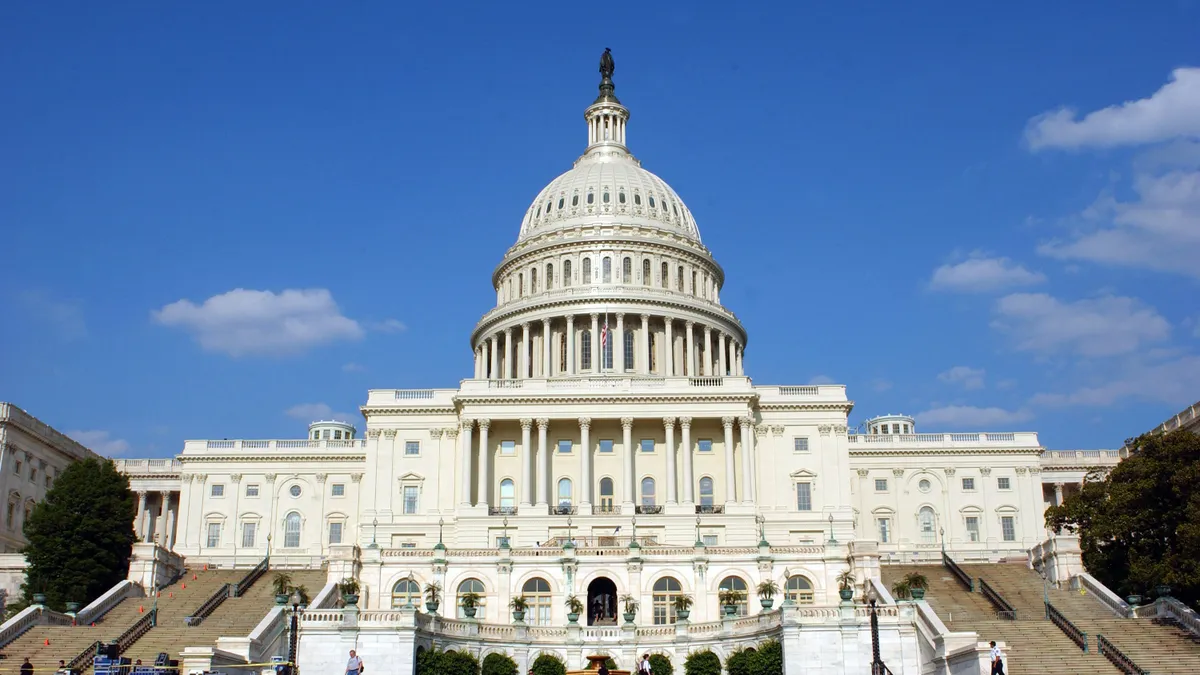Dive Brief:
- Congressional lawmakers are focused on getting the Pregnant Workers Fairness Act to pass the Senate in 2022, Sen. Bill Cassidy, R-La., said last Wednesday during a virtual panel hosted by the Bipartisan Policy Center.
- The PWFA, which would require employers with 15 or more employees to provide reasonable accommodations for job applicants and employees with known limitations related to pregnancy, childbirth and related medical conditions, passed the House last May in a 315-101 vote and was advanced by the Senate Committee on Health, Education, Labor and Pensions in August 2021.
- "We're working with colleagues to get [the bill] passed and signed into law this year," said Cassidy, but neither he nor fellow panelist Sen. Bob Casey, D-Pa., would elaborate on the timeline to passage when asked for additional details. "This is a bill whose time has come and we're ready to get it done," Casey said.
Dive Insight:
The news signals movement on legislation that has long been of interest to employers. At present, the Pregnancy Discrimination Act prohibits discrimination on the basis of pregnancy or pregnancy-related conditions.
But advocacy groups from across the political spectrum have taken note of the deficiencies in existing policy, something Cassidy highlighted as an advantage for the PWFA. For example, the American Civil Liberties Union wrote in a December 2021 article that the PWFA would help address the issue of employers routinely denying pregnant workers temporary job modifications such as breaks, schedule changes and reassignments. Shortly after last year's House vote, the U.S. Chamber of Commerce said in a statement that the bill would clarify an employer's obligation to accommodate pregnant employees and applicants.
"The accommodations employers would be asked to provide under the Act are pretty simple," Casey said. "For some it might just be providing a water bottle, others it might just be providing a stool so that worker can have rest when she needs it or it could be light duty. It could be a uniform that fits well during the pregnancy. These are simple and reasonable accommodations."
Additionally, the bill would also prohibit employers from, among other things, requiring employees affected by pregnancy or related conditions to take paid or unpaid leave if another reasonable accommodation can be provided.
Currently, a variety of state and local laws expand on the existing federal anti-discrimination protections afforded to pregnant employees at the federal level. California, for example, requires employers to provide employees with up to four months of pregnancy disability leave and return employees who take such leave to the same job or a comparable job.















